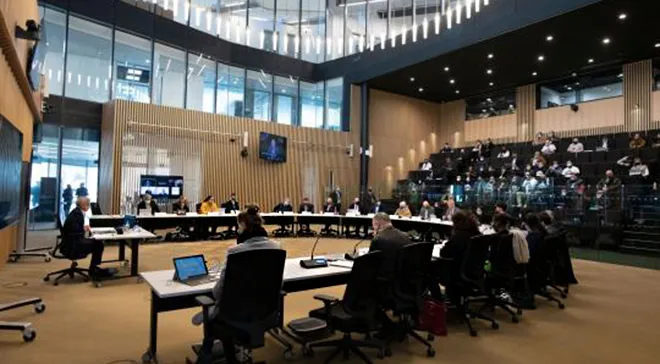 On March 15th, the London Assembly Health Committee published its “Gambling Related Harms in London” report, which is centred on how Londoners are affected by gambling harm and how advertising, in particular, impacts those struggling with gambling. Based on the investigation’s results, the Committee has called for Sadiq Khan, who currently serves as the Mayor of London, to submit a proposal to the Transport for London (TfL) authority for the blanket prohibition of the display of gambling ads in London’s transport network.
On March 15th, the London Assembly Health Committee published its “Gambling Related Harms in London” report, which is centred on how Londoners are affected by gambling harm and how advertising, in particular, impacts those struggling with gambling. Based on the investigation’s results, the Committee has called for Sadiq Khan, who currently serves as the Mayor of London, to submit a proposal to the Transport for London (TfL) authority for the blanket prohibition of the display of gambling ads in London’s transport network.
Moreover, the Mayor has previously pledged to ban gambling ads on public transport, specifically in his 2021 election manifesto. Attempts to make good on this promise have not been made thus far, and the Mayor’s representatives have specified “limitations in the evidence base linking gambling advertising with gambling harm” as an obstacle, with another issue being tied to the ambiguity of what constitutes a “harmful” ad and how the Committee has not clarified what distinguishes it from a non-harmful ad.
The Committee did not dismiss these concerns, but argued that lack of definitive evidence does not prove that harm is absent. What is more, according to the Committee, the inability of anyone to distinguish between gambling ads that are harmful and those that are not should be a prime reason to introduce a blanket ban. The Committee also called for a “public health approach” to be taken with regards to gambling harm prevention and early intervention.
The Committee’s research also involved a public meeting held in London’s City Hall in November 2023, and another one in February 2024. The former was centred on gambling harm experts, while the latter aimed to give individuals whose lives have been influenced by gambling-related harms the chance to speak on the matter. Moreover, the Committee also called for evidence to be provided by key stakeholders.
Key Findings and Proposals
 The Committee ultimately concluded that, based on the data gathered, problem gambling is a serious issue in London, and gambling harm as a whole can have serious adverse effects on individuals’ lives in terms of their mental health, their financial situation, and their relationships with family and friends. As found in research published by the UK’s Office for Health Improvement and Disparities, London’s rate regarding individuals who would benefit from gambling treatment revealed a figure of 3,835 per 100,000 residents in 2023, the highest overall rate in the country.
The Committee ultimately concluded that, based on the data gathered, problem gambling is a serious issue in London, and gambling harm as a whole can have serious adverse effects on individuals’ lives in terms of their mental health, their financial situation, and their relationships with family and friends. As found in research published by the UK’s Office for Health Improvement and Disparities, London’s rate regarding individuals who would benefit from gambling treatment revealed a figure of 3,835 per 100,000 residents in 2023, the highest overall rate in the country.
Other concerning findings were revealed through a survey conducted by the Gamble Aware charity, according to which 7.6% of Londoners are an “affected other,” i.e. individuals who do not partake in wagering but are nonetheless affected by gambling harm due to a close one’s own struggles with gambling addiction. These individuals are typically the families and children of problem gamblers. Other data has shown that Londoners belonging to minority ethnic groups and lower socio-economic groups are at a higher risk of being affected by gambling harm. Moreover, GambleAware has also found that London’s problem gambling rate (5.6%) is nearly two times that of the average 2.9% for Great Britain.
The Committee also cited a 2022 study commissioned by Sadiq Khan himself and conducted by researchers from the University of Sheffield and the University of Glasgow. The researchers found that if gambling ads were to be restricted, this would mitigate the way the promotion of gambling disproportionately affects gamblers and that “prevention strategies should include policies which limit exposure to advertising, particularly among children and vulnerable groups.”
After outlining various pieces of evidence and research that have to do with gambling harm in London, the Committee made a series of recommendations to the Mayor, starting with an emphasis on how the next iteration of the Health Inequalities Strategy implementation Plan by the Mayor will need to include extensive coverage of gambling harm. Other recommendations have to do with how the Mayor should approach the issue in terms of prohibitions, partnerships with entities such as the NHS, awareness campaigns, and more. Among the recommendations was, of course, the call for a blanket ban on gambling ads when it comes to the TfL network.
- Author


